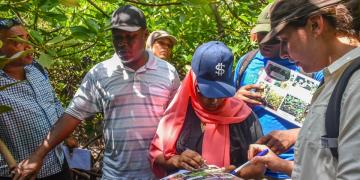Forests for Live Movement (Network Building)
Participative selection of restoration areas within Key Biodiversity Areas (KBAs)
Community-based Maintenance for Sustainable Livelihood
Adopt-A-Seedling (AAS) Program
Using Native Trees in the restoration sites
